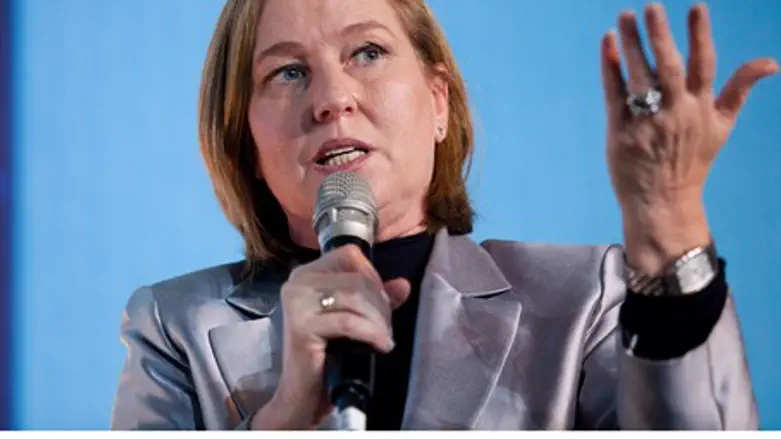
The Israel-US Relations Lobby of the Knesset met Wednesday morning, to discuss the latest developments in the ongoing relationship between both countries. Among the participants in the event were former Israeli ambassador to the US and current Kulanu MK Michael Oren, and former Foreign Minister Tzipi Livni.
According to Livni, Israelis are too quick to judge American stances on issues affecting their country. “Many Israelis think that they are 'okay,' and that the problems with the relationship with the U.S. stem from their side,” whether due to the American desire to impose a two-state solution, or other reasons.
But Israelis should give the U.S. more credit, said Livni. “I can tell you that – as former Foreign Minister – that every single major IDF mission begins with a phone call to the White House. Either we can be an isolated state fighting our enemies, or we can be an ally of the greatest power in the world and fight our enemies.”
One reason the Palestinian Authority has toughened its stances recently – demanding a full Israeli withdrawal from Judea and Samaria and most of Jerusalem as the price of avoiding charges at the International Court of Justice – is because “they understand Prime Minister Netanyahu's weak point – Israel's relationship with the world. If the U.S., for example, decides to change its policy of vetoing anti-Israel measures in the UN Security Council, where would we be?
“We need to be sensitive to the current situation,” said Livni. “It doesn't matter if the we like the American president or dislike him. We have to work with him, Democrat or Republican. We cannot place all our eggs in one party's basket, preferring one over the other. Too much is at stake.”
In an interview Tuesday with Channel Two, U.S. President Barack H. Obama issued a threat to Israel, referring to his remarks after the recent Israeli elections when he said America would have to reassess its policy towards Israel, and clarifying that at the time he was referring to something specific. "If there are additional resolutions introduced in the United Nations...up until this point we have pushed away against European efforts for example, or other efforts. Because we've said, the only way this gets resolved is if the two parties worked together," he said, referring to European moves to unilaterally recognize the PA as a state.
Describing Netanyahu, Obama said, "I think that he also is someone who has been skeptical about the capacity of Israelis and Palestinians to come together on behalf of peace. I think that he is also a politician, who's concerned about keeping coalitions together and maintaining his office."
"Netanyahu…is somebody who's predisposed to think of security first. To think perhaps that peace is naive," he continued. "To see the worst possibilities, as opposed to the best possibilities in Arab partners or Palestinian partners, and so I do think that right now, those politics, and those fears are driving the government's response. And, I understand it, but…what may seem wise and prudent on the short-term, can actually end up being unwise over the long-term."